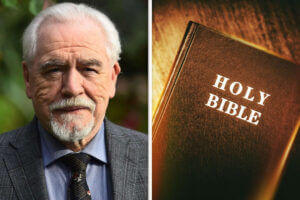A long time ago in a galaxy far, far away (well, actually it was 40 years ago in a crowded theater in suburban Atlanta) I saw Star Wars. It was 1977. I was a 19-year-old college student. I was totally wowed.
The special effects mesmerized me. I loved the light sabers, the droids and Luke Skywalker’s speeder bike. I laughed when Princess Leia said of Chewbacca, “Will someone get this big walking carpet out of my way?” I cheered when the good guys blew up the Death Star, and when the evil villain Darth Vader spun out of control in his TIE fighter into the depths of space—promising a sequel.
And there have been plenty of sequels and prequels since that first episode. Altogether the Star Wars movies have made $37 billion. The film franchise’s creator, George Lucas, sold the rights to the movies to Disney in 2012 for $4 billion. And now Disney expects to make $425 million in one weekend when the next installment, The Last Jedi, opens tomorrow.
When the first movie came out, some Christians immediately condemned it, claiming that George Lucas was a closet Hindu and that the movie was a satanic conspiracy aimed at planting New Age ideas into children’s minds. Those same critics got louder after the release of the second film, The Empire Strikes Back, mainly because the green, cartoonish Yoda (sounds too much like “yoga”) was a Krishna-esque guru who taught his padawan disciple, Luke, how to levitate objects with his thoughts.
But within a few years observers started noticing that Star Wars contained basic Christian themes such as the triumph of good over evil, the virtue of sacrifice and the power of redemption. That bad-to-good redemption angle was especially obvious in The Return of the Jedi, when Darth Vader turns against the devilish emperor to defend Luke, who refuses to convert to the dark side of the mysterious Force.
Many Christian authors have found faith inspiration in the Star Wars stories. They have produced books including The Gospel According to Star Wars (John C. McDowell), Star Wars Jesus (Caleb Grimes) and Finding God in a Galaxy Far, Far Away (Timothy Paul Jones). Writer Paul Kent even wrote a 40-day devotional, The Real Force, based on the movies.
But the question remains: Are the Star Wars movies good for us? Or are they dangerous? Or are they just harmless, escapist entertainment?
Maybe you won’t trust me to answer that, since I plan to see The Last Jedi. I’m not one of those Christians who demonizes a film just because it isn’t appropriate for Sunday school. I didn’t shield my children from fairy tales, even if those stories contained magic (“Cinderella,” “Pinocchio”), a witch (The Lion, the Witch and the Wardrobe) or a ghost (A Christmas Carol). In fact, I believe God can use creative fiction to teach and inspire us.
I like good stories. I especially love stories in which the underdog becomes a hero and fights for justice. I love stories in which the good guys win, the bad guys lose and the worst guy realizes he made a mistake and decides to change. I love stories that illustrate the values I want in my life, even if the setting is a fictional planet (like Alderaan or Tatooine) or a fictional town in Alabama (like Maycomb in my favorite novel, To Kill a Mockingbird).
That is the appeal of all the Star Wars movies. They speak to us on a deep level about important themes like forgiveness, courage and virtue. They emphasize faith, hope and love.
Just because I like the Star Wars films doesn’t mean I think they have correct theology. I don’t believe the Force is the same thing as the God of the Bible (and yes, there are definite Hindu and Buddhist ideas thrown into the mix). But I do believe I can use the Star Wars story to help a person understand Christianity. That is the job of a wise evangelist—he can use a cultural reference, a myth, a pop song or a film to preach the gospel.
If the apostle Paul were around today, I suspect he would be at the Cineplex watching Star Wars—and collecting material for his next sermon. He tried to be relevant to his audience. He said, “I have become all things to all men, that I might by all means save some” (1 Cor. 9:22). He spoke the language of his culture without ever watering down his message or his morals.
Paul often used the popular poetry of his day to reach unbelievers. When he preached in Athens, he quoted two secular poets to describe God’s vast purpose in a way that made sense to a pagan audience. He was quoting Epimenides when he said: “For in Him [God] we live and move and exist” (see Acts 17:28).
Our culture today is very much like first-century Athens. For many people, The Last Jedi is the closest thing they have to religion. Let’s be sensitive to those who are seeking the meaning of life even when they go to a movie. Start conversations. Share how Jesus has been the true “Force” in your life. Let the Holy Spirit use you to turn many people from the dark side.
See an error in this article?
To contact us or to submit an article























